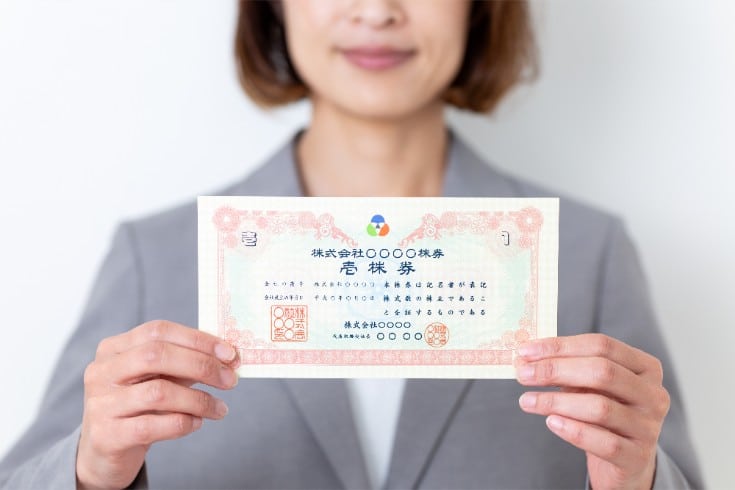Legal Requirements for Capital Provision and Contribution at the Time of Incorporation of a Stock Company in Japan

Establishing a company in Japan offers attractive opportunities for foreign entrepreneurs, but success hinges on a precise understanding of the Japanese legal system, particularly the legal requirements related to capital and contributions. The Japanese Companies Act provides flexible provisions regarding capital for the establishment of a stock company, yet merely meeting the legal minimum amount may hinder smooth business operations and future growth. It is essential to strategically consider the preparation of capital and methods of contribution from various aspects, such as the type of business, the need for funding, and the acquisition of residency status (visa status) in Japan.
This article provides a detailed explanation based on specific Japanese statutes, covering the legal requirements for capital when establishing a stock company, the concrete procedures for monetary and in-kind contributions, the selection of financial institutions for payments, reporting obligations under the Japanese Foreign Exchange and Foreign Trade Act (FEFTA), and the role of capital in obtaining the “Business Manager” residency status. This knowledge forms the foundation for foreign entrepreneurs to smoothly and reliably launch a business in Japan. Deep understanding of the complexities of the Japanese legal system and specialized legal support to solve the unique challenges faced by foreign entrepreneurs contribute significantly to the success of their ventures. Through this article, we aim to deepen your understanding of company establishment in Japan and provide reliable information to confidently start your business.
Legal Requirements and Practical Considerations for Capital in Establishing a Company in Japan
Under Japanese Corporate Law, the minimum capital requirement for establishing a stock company has been abolished, theoretically allowing for the establishment of a company with as little as one yen. This flexible system was introduced following the revision of the Japanese Corporate Law in 2006 (Article 445, Paragraph 1 of the Japanese Corporate Law). However, capital is not merely a legal requirement; it serves as a crucial indicator of a company’s financial foundation and external creditworthiness. Excessively low capital can not only hinder business operations but also negatively impact the acquisition of trust from business partners and financial institutions.
Capital Requirements for Specific Business Activities (Licensed Industries) Under Japanese Law
In order to conduct certain businesses in Japan, it is necessary to obtain licenses as stipulated by Japanese law, and for acquiring these licenses, there may be a requirement to have a minimum amount of capital. For example, in the construction industry, a capital of at least 5 million yen is required, and for paid employment placement businesses, a capital of at least 5 million yen per business location is mandated. For worker dispatching businesses, the requirement is over 20 million yen per business location, while for the first-class travel agency business it is 30 million yen, for the second-class travel agency business it is 7 million yen, for the third-class travel agency business it is 3 million yen, and for the regionally limited travel agency business it is 1 million yen. If you are considering starting a business in these industries, it is essential to meet these minimum capital requirements in order to obtain the necessary licenses and legally commence your operations.
- Construction industry: Over 5 million yen
- Paid employment placement business: Over 5 million yen (varies by number of business locations)
- Worker dispatching business: Over 20 million yen (varies by number of business locations)
- First-class travel agency business: 30 million yen
- Second-class travel agency business: 7 million yen
- Third-class travel agency business: 3 million yen
- Regionally limited travel agency business: 1 million yen
The Impact of Capital on the Consumption Tax Exemption Measures in Japan
Under Japanese Consumption Tax Law, companies with a capital of less than 10 million yen (approximately $90,000) are, in principle, exempt from the obligation to pay consumption tax for the first and second fiscal periods after their establishment. This exemption period can improve cash flow during the initial stages of a business and contribute to its stabilization, making the amount of capital a crucial consideration when setting up a company. However, there is an exception that if sales and personnel expenses (including director’s compensation) in the first six months of the first period exceed 10 million yen each, the company becomes subject to taxation in the second period.
The consumption tax exemption measures not only address the legal requirement of ‘how much is needed’ but also indicate the necessity to set capital as part of a business strategy that considers ‘how to start a business and efficiently manage funds.’ Foreign entrepreneurs can understand Japanese tax incentives and reflect them in their capital settings to reduce financial burdens in the early stages and enhance the sustainability of their business. This suggests the importance of strategic decision-making that goes beyond mere compliance with laws and regulations.
The Role of Capital in Company Credibility and Fundraising Under Japanese Law
Capital is a crucial factor for financial institutions, such as banks, when considering lending. If a company’s capital is low, it may be seen as less stable and with a lower repayment ability, potentially making it harder to secure loans. Additionally, for clients and customers, capital serves as an indicator of a company’s reliability. Sufficient capital can create the impression of stable business operations, which may lead to expanded business opportunities.
It is important to note that “window dressing” (temporarily recording non-existent funds as capital) is prohibited under Japanese law. Capital must be actually invested in the business and form the financial foundation of the company. This requires proper planning, including the timing of capital transfers and the setting of reserves. This regulation ensures not just the formal preparation of capital but guarantees that the funds are indeed invested in the business, forming the company’s financial foundation. If “window dressing” were allowed, it could lead to a discrepancy between a company’s financial situation and its reality, risking incorrect credit assessments by clients and financial institutions, and potentially undermining the overall market’s credibility. Therefore, this regulation is understood as a vital legal foundation not only for maintaining the health of individual companies but also for preserving the transparency and trustworthiness of Japan’s entire commercial transactions. Foreign entrepreneurs must deeply understand this principle and clarify the sources of their funds to avoid future troubles and establish credibility in their business ventures in Japan.
Types of Capital Contributions and Legal Requirements: Monetary and In-kind Contributions in Japan
In the establishment of a Japanese joint-stock company (Kabushiki Kaisha), there are primarily two methods of capital contribution: monetary contributions and non-monetary property contributions (in-kind contributions). Each method has different requirements and practical considerations based on the Japanese Companies Act.
Basic Procedures and Points of Caution for Monetary Contributions in Japan
In the establishment of a Japanese corporation, the most common method of contribution is monetary. The incorporators must pay the full amount of the monetary contribution for the shares issued at the time of incorporation into an account designated by the incorporators, such as a bank (Japanese Companies Act, Article 34, Paragraphs 1 and 2; Japanese Companies Act, Article 208, Paragraph 1) .
This payment must be more than just having funds in an account; there must be a verifiable transaction such as a “transfer” or “deposit” reflected in the bankbook or other financial records . It is common practice for the account name for the deposit to be in the name of the representative incorporator. Even if there are multiple incorporators, each incorporator typically transfers their contribution to the representative’s personal account .
The financial institutions that can be used for the deposit are limited to those specified by Japanese law, such as banks, credit cooperatives, credit unions, trust companies, the Central Cooperative Bank for Commerce and Industry, agricultural cooperatives, and labor banks . In the case of foreign entrepreneurs, a Japanese branch of a foreign bank (a branch of a bank licensed by the Prime Minister of Japan) can be used as the deposit account . However, foreign branches of foreign banks are not recognized as deposit handling institutions .
When foreign entrepreneurs make monetary contributions, selecting a financial institution is not just a matter of convenience but is directly connected to legal requirements and future visa applications. Properly using an account at a financial institution recognized by Japanese law and clearly maintaining the transfer records is extremely important not only for company registration but also for future applications and renewals of management visas. In particular, remittances from overseas are subject to strict scrutiny from the perspective of anti-money laundering, and choosing an inappropriate financial institution or unclear method of remittance can lead to serious consequences such as delays in establishment procedures or denial of visa applications. This goes beyond mere procedural caution and touches on the very foundation of the business.
The Legal Framework for In-Kind Contributions and Recognized Assets in Japan
In lieu of cash, it is possible to make contributions to a company with non-monetary assets (“items”). This is known as an in-kind contribution. Assets that are recognized for in-kind contributions must be recordable on the balance sheet, such as computers, real estate, vehicles, receivables, securities, and more.
Under Japanese Corporate Law (Article 34, Paragraph 1 and Article 208, Paragraph 2), in-kind contributions are only permitted by the incorporators at the time of a company’s establishment. After the establishment, in-kind contributions can also be made by parties other than the incorporators. When making an in-kind contribution, it is an “absolute requirement” to include in the articles of incorporation the details and value of the said assets (Japanese Corporate Law, Article 199, Paragraph 1, Item 3).
Exemption Criteria for the Application of the Inspector System and Property Valuation in In-Kind Contributions Under Japanese Corporate Law
The value of property contributed in-kind is not as clear-cut as cash, which poses a risk of overvaluation. Therefore, as a general rule, an investigation by an inspector appointed by the court is required (Article 207, Paragraph 1 of the Japanese Companies Act). However, if any of the following criteria are met, the investigation by the inspector is not necessary (Article 207, Paragraph 9 of the Japanese Companies Act).
- Requirement related to the total value: If the total value of the assets to be contributed in-kind is 5 million yen or less.
- Requirement for marketable securities: If the assets to be contributed in-kind are marketable securities with a market price, and the value stated in the articles of incorporation is below the market price.
- Requirement for expert certification: If the value of the in-kind contributed property has been certified as appropriate by professionals such as attorneys, certified public accountants, or tax accountants (in the case of real estate, an appraisal by a real estate appraiser is also necessary).
- Requirement for monetary claims: If the in-kind contributed property is a monetary claim against the company (limited to those where the payment due date has arrived), and its value does not exceed the book value of the related debt.
The “exemption from inspector investigation” for in-kind contributions promotes the establishment of small and medium-sized enterprises and startups, while the “liability for the shortfall” of the promoters ensures the soundness of the contributions. By lowering the barrier to establishment through the exemption from inspector investigation, and by setting a strict penalty called liability for the shortfall, overvaluation of in-kind contributions is prevented, and the financial integrity of the company’s capital is secured. Foreign entrepreneurs, even in cases where an inspector investigation is not required, must objectively and carefully evaluate the in-kind contributed property, thereby avoiding unexpected legal liabilities after establishment and ensuring a solid financial foundation for the company.
Responsibilities of Incorporators in Kind Contributions and Practical Considerations
If the value of the property contributed in kind is significantly less than the amount stated in the articles of incorporation, the incorporators and directors at the time of establishment have an obligation to pay the deficit to the company (under Japanese Corporate Law, Article 52) . This is referred to as “liability for the shortfall,” and it is a crucial provision for ensuring the adequacy of the company’s capital.
While in-kind contributions offer the advantage of allowing the establishment of a company even without immediate cash on hand, they require more time for document preparation and can result in a lower ratio of cash to total capital, which poses a risk of insufficient operating funds after the business starts. Therefore, careful capital planning is essential.
Capital Contribution Procedures and Selection of Financial Institutions Under Japanese Corporate Law
When establishing a company, the payment of capital must adhere to the stringent procedures set forth by the Japanese Companies Act. Accurate execution of these procedures is essential for the completion of company registration.
Requirements for Payment Handling Institutions and Appropriate Account Names for Capital Contribution
When establishing a company, the payment of capital must be made through specific financial institutions designated by Japanese law (Article 34, Paragraph 2 of the Japanese Companies Act). Specifically, this includes banks, credit cooperatives, credit unions, trust companies, the Central Cooperative Bank for Commerce and Industry, agricultural cooperatives, and labor banks. Post offices (Japan Post) and some internet-only banks may not be recognized as payment handling institutions.
For foreign entrepreneurs, it is possible to use a Japanese branch of a foreign bank (a branch of a bank licensed by the Prime Minister of Japan) as the payment account. However, foreign branches of foreign banks are not recognized as payment handling institutions. The account name for the payment destination is typically that of the individual representative of the incorporators. If there are multiple incorporators, one of them is designated as the representative, and all members transfer their contributions to that individual’s account.
Creation and Submission of Documents Certifying Payment
When applying for company registration in Japan, it is necessary to submit documents to the Japanese Legal Affairs Bureau that prove the actual payment of the capital (Article 47, Paragraph 2, Item 5 of the Japanese Commercial Registration Law). These documents typically consist of a “Payment Receipt Certificate” created by the payment handling institution or a certificate created by the representative director at the time of establishment, combined with one of the following documents:
- A copy of the bankbook from the payment handling institution, including the front cover, back cover, spread, and the section with the deposit records.
- A transaction statement or other document created by the payment handling institution.
When submitting a copy of the bankbook, it is insufficient to simply show that the account has a certain balance. The description section must indicate “transfer” or “deposit,” making it apparent that the funds have actually been paid in. If there are multiple initiators, it is recommended to deposit the funds with the names of each initiator displayed, which allows for clear identification of whose contribution it is.
In the case of a public offering establishment (a method of establishing a company by soliciting shares from persons other than the initiators), a “Payment Deposit Certificate” issued by the payment handling institution is required (Article 64, Paragraph 1 of the Japanese Companies Act). For an initiator establishment (a method of establishing a company by having only the initiators subscribe to shares), a Payment Receipt Certificate or similar document is sufficient.
The “formal accuracy” of the capital payment procedure is not merely an administrative process; it is extremely important in proving the legal existence and financial foundation of a company. It is clearly stipulated that the payment must have been “actually made” and that it must be “apparently clear” from the bankbook entries such as “transfer” or “deposit,” and that “merely having a certain balance is not enough.” This reflects the Japanese legal system’s emphasis on the certainty of a company’s financial foundation, and foreign entrepreneurs must deeply understand the importance of this “formal accuracy,” ensuring all transactions are transparent and recorded.
Key Points to Consider When Making Capital Contributions from Abroad to Japan
When a foreign national transfers capital funds from overseas, the method and history of the transfer are subject to scrutiny by Japan’s Immigration Bureau and related agencies. It is crucial to retain evidence (such as transfer details) that clearly indicates the transfer, especially for amounts exceeding 5 million yen. Furthermore, if you bring more than 1 million yen in cash into Japan, you are obligated to declare it at Japanese customs. This declaration document becomes vital evidence proving that the cash was legally brought into the country as capital funds. Caution is also advised when using an overseas branch account, as the transaction may be in a foreign currency, potentially affecting the amount in Japanese yen recorded as capital funds.
Notification Obligations Under the Japanese Foreign Exchange and Foreign Trade Act (FEFTA)
Company establishment in Japan by foreigners may fall under “inward direct investment” as defined by the Japanese Foreign Exchange and Foreign Trade Act (hereinafter referred to as “FEFTA”), which can trigger the obligation to submit prior notifications or post-investment reports.
Definition of Inward Direct Investment and Its Application to Company Establishment by Foreigners
The Japanese FEFTA aims to ensure the smooth operation of Japan’s economy and security by requiring foreign investors to either submit prior notifications or post-investment reports for investments in Japanese enterprises (referred to as “inward direct investments, etc.”). The term “foreign investor” refers to non-resident individuals, foreign corporations, or Japanese corporations with more than 50% of their voting rights held by foreign corporations (as per Article 26, Paragraph 1 of the Japanese FEFTA).
The act of establishing a company in Japan and acquiring its shares by foreigners or foreign corporations often qualifies as “inward direct investment.” In particular, the acquisition of shares in a non-listed company is considered inward direct investment even if only one share is acquired.
Industries and Requirements for Prior Notification and Post-Investment Reporting
The need for prior notification or post-investment reporting for inward direct investments varies depending on the nature of the business of the investment recipient.
- Prior Notification: Investments in companies engaged in “designated industries” (core industries) that may threaten Japan’s security generally require prior notification. This includes a wide range of industries such as manufacturing related to weapons, aircraft, space development, nuclear power, specific IT, energy, pharmaceuticals, and critical mineral resources. If prior notification is required, the investment cannot be executed until a certain period (usually 30 days, two weeks for less sensitive cases, or as short as four business days) after the notification is accepted. Company registration cannot be applied for until this period has ended.
- Post-Investment Reporting: For investments in industries not subject to prior notification, post-investment reporting is generally required. This report must be submitted to the Minister of Finance and the minister in charge of the business sector through the Bank of Japan within 45 days of the investment activity.
Exemption System for Notifications and Timing of Procedures
To promote foreign investment and reduce the burden on investors, an exemption system for prior notifications has been introduced. For example, if the investor is an overseas financial institution, comprehensive exemption from prior notification may be granted if certain criteria are met (such as not taking up an officer position, not proposing the transfer or discontinuation of designated industry businesses, etc.). However, even if exempted, post-investment reporting may still be required in some cases.
The notification obligations under the FEFTA impose time and procedural constraints on the company establishment process for foreign entrepreneurs in Japan, necessitating strategic planning. It is particularly important to proceed with procedures on a well-planned schedule, taking into account the review period when prior notification is required. Attention is needed as notifications tend to concentrate before the year-end holidays and long vacation periods, which can lead to longer review times. Failure to notify or comply with orders can result in fines.
The Relationship Between the “Business Manager” Residence Status and Capital in Japan
Many foreigners managing businesses in Japan need to obtain the “Business Manager” residence status (visa). Capital is one of the important requirements for acquiring this residence status.
Capital Requirements for Obtaining a Business Manager Visa (5 Million Yen)
Foreign nationals who run companies in Japan and wish to stay for medium to long terms to conduct business activities are required to have the “Business Manager” residence status. One of the requirements for obtaining this visa is the “scale of business,” which specifically requires either “at least two full-time employees” or “capital of 5 million yen or more.” Since employing full-time staff in the early stages of a startup can be a significant burden, it is common to prepare capital of over 5 million yen to obtain the Business Manager visa.
Key Points in the Review of Capital Procurement History and Remittance Methods
In the review process for the Business Manager visa, having over 5 million yen in capital is not just about meeting the amount; the “history of procurement (source)” is strictly scrutinized. Merely having “show money” is not accepted. If the capital is sourced from a foreign national’s savings, it is necessary to substantiate that the funds have been accumulated from appropriate sources of income. Evidence for this can include tax returns, pay slips, and bank transaction records.
The method of remittance is also subject to review. It is crucial to retain evidence (remittance details, etc.) that clearly shows the transfer of over 5 million yen. Furthermore, when bringing in cash exceeding 1 million yen into Japan, it is mandatory to declare it at Japanese customs. This declaration document serves as a method to prove that the cash brought in as capital was legally imported.
These requirements indicate that the Japanese Immigration Bureau values capital not just as a mere figure but as substantial funds that ensure the continuity and stability of the business. Foreign entrepreneurs must keep all processes, from the formation of capital to remittance and payment, transparent and well-documented in anticipation of the visa application.
Shareholder Rights and Responsibilities: Legal Status as an Investor in Japan
In a Japanese joint-stock company, shareholders obtain the status of owners by investing in the company. This status comes with specific rights and responsibilities as defined by the Japanese Companies Act.
Principle of Limited Liability and No Additional Investment Obligation for Shareholders
Shareholders of a Japanese joint-stock company are liable only up to the amount of the share subscription price (Article 104 of the Japanese Companies Act). This is known as “limited liability,” and it means that shareholders are not required to make additional investments even if the company’s debts exceed their contribution. Furthermore, shareholders are not directly liable to the company’s creditors; their liability is indirect. This principle of limited liability is a crucial mechanism that allows investors to confidently invest capital in a company.
Key Rights Held by Shareholders of a Joint-Stock Company
The Japanese Companies Act grants various rights to shareholders. These rights are essential for shareholders to participate in the management of the company as owners and to enjoy the benefits of its operations. The main rights include:
- The right to receive dividends (dividend claim rights): This is the right to receive a portion of the profits earned by the company through its business activities as dividends (Article 105, Paragraph 1, Item 1 of the Japanese Companies Act). It is an important right for shareholders as a financial return on their investment.
- The right to receive a distribution of residual assets: In the event that the company is dissolved and, after settling its debts, there are remaining assets, shareholders have the right to receive a distribution of these residual assets (Article 105, Paragraph 1, Item 2 of the Japanese Companies Act).
- Voting rights at the general shareholders’ meeting: Shareholders have the right to participate in decision-making on important matters of the company at the general shareholders’ meeting, which is the highest decision-making body of the company (Article 105, Paragraph 1, Item 3 of the Japanese Companies Act). This includes the appointment of directors and amendments to the articles of incorporation.
- The right to propose agenda items at the general shareholders’ meeting: Shareholders who meet certain requirements (typically holding at least 1% of voting rights or 300 shares for six months or more) have the right to propose specific agenda items at the general shareholders’ meeting (Article 304 of the Japanese Companies Act).
- The right to inspect accounting documents: Shareholders can request to view the company’s accounting documents (balance sheets, income statements, etc.) and business reports (Article 442, Paragraph 3 of the Japanese Companies Act).
- The right to inspect the articles of incorporation: Shareholders can request to view the company’s articles of incorporation, which set out the basic rules of the company (Article 31, Paragraph 2 of the Japanese Companies Act).
- The right to inspect the shareholder registry: Shareholders can request to view the company’s shareholder registry (Article 125, Paragraph 2 of the Japanese Companies Act).
These rights play a significant role in allowing shareholders to monitor the sound management of the company and protect their own interests. For foreign entrepreneurs becoming shareholders, understanding these rights is essential to safeguard their position and interests in operating a business in Japan.
Summary: Monolith Law Office’s Support Structure
Preparing the required capital and making contributions when establishing a corporation in Japan can be complex, especially for foreign entrepreneurs. While the Japanese Companies Act stipulates a minimum capital requirement of one yen, in practice, a higher amount of capital is often necessary due to various factors such as licensing requirements depending on the type of business, VAT exemption measures, obtaining credit from financial institutions, and most importantly, acquiring the “Business Manager” residency status. Additionally, the choice between monetary and in-kind contributions, the strict requirements for payment procedures, and obligations for prior notification and post-reporting under the Japanese Foreign Exchange and Foreign Trade Act (FEFTA) demand specialized knowledge and meticulous attention.
Monolith Law Office has a wealth of experience in providing legal services related to company establishment to numerous clients within Japan. We offer practical advice and comprehensive legal support for the unique challenges faced by foreign entrepreneurs, such as compliance with legal requirements for remittances from abroad, clarification of the capital funding process for obtaining a Business Manager visa, and dealing with the complex notification obligations under FEFTA. Our firm includes several English-speaking attorneys with foreign legal qualifications, ensuring that our foreign clients who are not familiar with Japanese can consult with confidence in an environment close to their native language. We are committed to supporting foreign entrepreneurs considering establishing a company in Japan, helping them minimize legal risks and start their business smoothly. Please feel free to consult with us.
Category: General Corporate





















